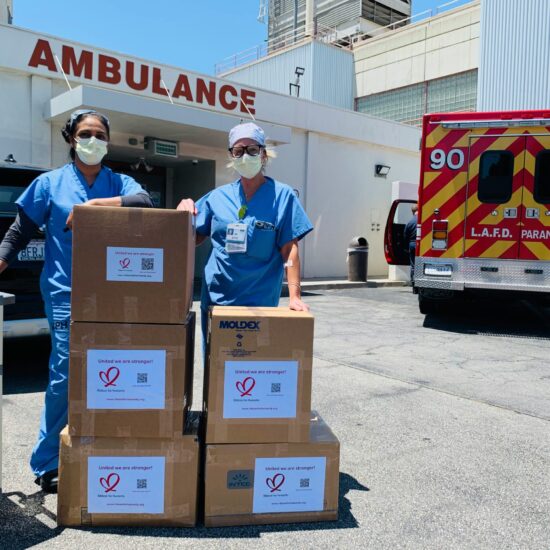
Bill Silberg is a strategic publishing and communications consultant with 30 years experience in health, medicine, health policy and science, in both the professional and consumer sectors
Stop me if you’ve heard this one.
 An independent government advisory panel of experts in primary care and prevention studies spends a lot of time and care evaluating the published evidence behind the use of a screening tool for a common form of cancer. The test is widely used and highly influential in determining whether a positive result will lead to treatments that can have substantial side effects.
An independent government advisory panel of experts in primary care and prevention studies spends a lot of time and care evaluating the published evidence behind the use of a screening tool for a common form of cancer. The test is widely used and highly influential in determining whether a positive result will lead to treatments that can have substantial side effects.
The panel issues its draft report, saying the evidence base doesn’t justify the routine use of the test in those who are otherwise healthy or of a certain age. In fact, the panel says, the test can lead patients with positive results to undergo surgical procedures that won’t necessarily mean that they’ll live longer but that might well lead to a poorer quality of life.
Response to the report is swift, vocal and mixed. Some experts with doubts about the test’s effectiveness call the report a useful tool in the push for evidence-based medicine. But a number of patient advocacy groups push back, hard, as do many surgeons who treat those with abnormal test results.
Some observers speculate that, despite concerns about soaring health care costs, calls for treatment decisions to be based on best evidence, and the growing move to giving patients more information upon which to make critical decisions, the panel’s report will unleash a politically and self-interest-fueled debate likely to mean little will change in practice in the near-term, if at all.
Sounds like the US Preventive Services Task Force’s 2009 release of guidelines recommending against routine mammography for women prior to age 50, right? Nope. It’s the same panel’s newly issued draft recommendations on the use of the prostate-specific antigen (PSA) test, which is widely used to screen for prostate cancer in men over age 50.
In essence, the task force found that the task force found that routine use of the test results in “small or no reduction in prostate cancer-specific mortality and is associated with harms related to subsequent evaluation and treatments, some of which may be unnecessary.”
Obviously, there are differences– in populations, evidence base and recommendations – between the 2009 mammography report and this most recent statement on PSA screening. And the Task Force, which was hammered politically and by a range of medical and patient groups two years ago, did seem to learn a bit from that earlier experience.
As the New York Times reported, panelists “knew that they would have to defend their recommendation and delayed issuing their report for two years to prepare for the battle that was certain to ensue.” The Times quotes Task Force co-chair Dr. Michael L. LeFevre as saying the panel originally voted against routine screening for prostate cancer in 2009 but that he “deliberately slowed down the process” as a result of the mammography experience.
“I looked at this and said, ‘I know this is going to happen with prostate cancer for all the same reasons, and we absolutely have to have the science right,’ ” he told the Times. The Task Force also scheduled a conference call this time around to discuss its recommendations and cite its evidence.
But the PSA’s defenders, including many urologists, oncologists and patient advocates, have learned a thing or two as well about what to do when they don’t agree with high-profile health policy recommendations. Taking a cue from what professional and consumer groups did in response to the mammography recommendations, many who disagreed with the Task Force’s PSA recommendations took to the public media with furious denunciations of the findings, calling them misguided, irresponsible, even saying their adoption would lead to needless deaths.
A number of physician groups were a bit less exorcised, disagreeing with the recommendations and urging that the PSA not be abandoned but agreeing that patients should be fully informed about the test’s limitations, the risks of over-detection and overtreatment and options other than surgery.
Perhaps, as some commentators have suggested, the Task Force recommendations will indeed reframe the debate over the use of the PSA test to the benefit of patients and the health care system as a whole, including leading to reduced expenditures on diagnostic or clinical services that might not be worth performing in the first place.
Or perhaps not. Maybe, as others have suggested, this is just the latest example of how what ought to be a vigorous but sober health policy debate devolves into a “he-said/she-said” defense of self-interest and entrenched beliefs – like we’ve seen any number of times before.
I found one of the most insightful comments on this aspect of the discussion in a blog posting by KevinMD, who noted that when one side in such a debate relies on data and the other on emotion, it’s not even close.
Politicians and celebrities will use their poignant stories to powerfully attack the recommendations,” he said. “Evidence-based supporters will need more than cold terms like ‘number needed to treat’ and ‘absolute risk reduction.’
“Without stories of their own, the Task Force recommendations will be vilified in the arena of public opinion, despite having the studies on their side. In today’s health care environment, emotion trumps data.”
Bill Silberg







